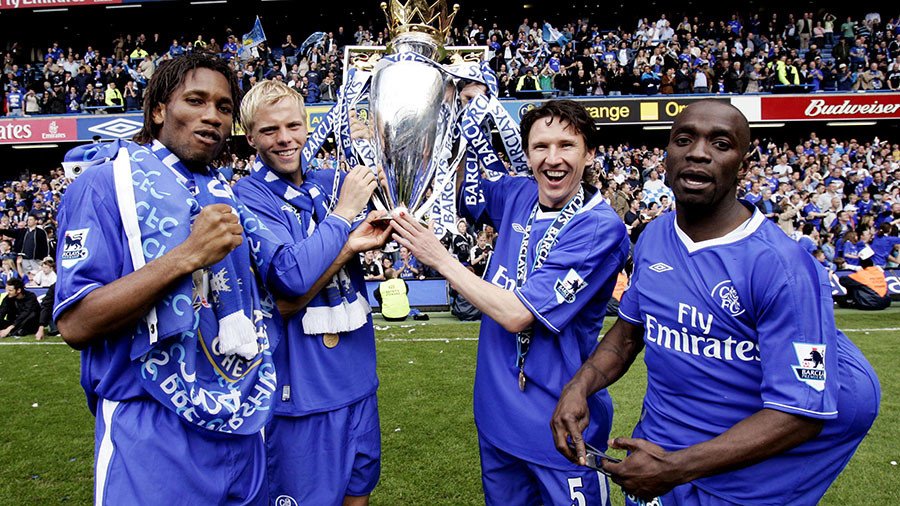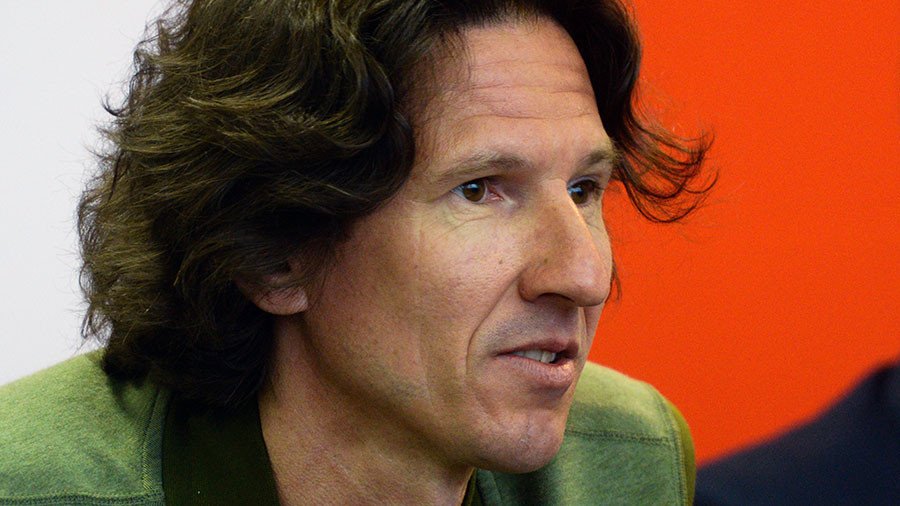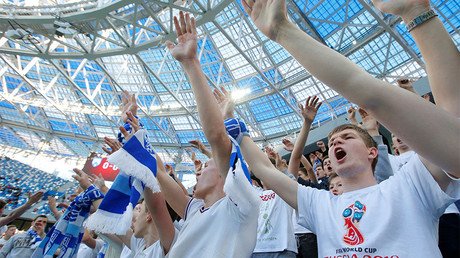News
‘FAN ID system will help prevent racism at 2018 World Cup’ – anti-discrimination chief Smertin
Russia's anti-racism chief Alexei Smertin says that the FAN ID system, which is obligatory for all fans visiting the 2018 FIFA World Cup in Russia, will help to prevent potential racist incidents at stadiums.
In an exclusive interview with RT, former Chelsea player and Russia captain Smertin, 43, spoke about Russia's efforts to eradicate racism in sport, its preparations for the 2018 World Cup, and the Fan ID system which was successfully tested at last year's Confederations Cup in Russia.
Eight years ago, Smertin was Russia's World Cup bid ambassador, helping his country win the hosting rights for football’s biggest spectacle despite Russia appearing to be an outside bet for many.
"It was of great importance for me to build my career outside of the football pitch. Several months after my retirement in 2009 I was invited by Russia's 2018 World Cup bid committee to join their team as a World Cup ambassador. We were the last country to launch the bid. I accepted their offer without any hesitation despite many people remaining skeptical about our chances to win. Nobody believed we would host the World Cup. We were supported by the Russian government, and I think that it played a key in our victory, as high-profile political and business figures took part in our World Cup presentations."
Smertin emphasized that FIFA's policy to expand football globally meant that World Cup hosting rights went to countries and regions which had never staged the tournament before.
"I wasn't 100 percent confident that we would win, but of course having done such an intense work we hoped for victory. The 2010 World Cup in South Africa was the starting point for FIFA, which wanted to widen horizons and football geography by awarding the hosting rights to Russia [for 2018] and Qatar [for 2022].
"Hosting the World Cup not only helps to develop the country's infrastructure in terms of stadiums, airports, and hotels, but it also give a unique chance to young football players to see their sports idols playing in front of them."
Talking about preparations for the global football showpiece, the anti-racism official said that his number one priority is ensuring a comfortable stay in Russia for representatives of different nations and religions.
"We need to be fully prepared to host the football showpiece, concentrating not only on the stadiums where World Cup matches will be staged, but putting extra emphasis on what will happen outside sports venues, as representatives of different nations and different confessions will come to Russia.
"June 14, the opening date for the 2018 World Cup, will also mark the end of the Muslim holy month of Ramadan. And of course Muslim fans traveling to Russia should know where they can buy halal food and where they can pray. We need to provide them with all the necessary information.
"My top priority as Russia's anti-racism and discrimination inspector is to make sure that all the fans coming to Russia this summer will feel comfortable not only in Moscow and Kazan, where they can find mosques, but also in other host cities such as Nizhny Novgorod, Kaliningrad, and Saransk. We have already decided to create a travel guide which will help fans to find the places they need. Please, treat my words seriously, it's possible to live without football, but it's difficult to get along without food and prayers. We need to provide them with all the necessary opportunities"
The 43-year old Barnaul native also stressed that significant efforts have been made to educate people by promoting basic values such as respect and tolerance.
"I cannot say that we are fighting against racism, because the world 'fight' can only be referred to what is happening on the football pitch, but in a friendly meaning. I decided to hold this post [anti-racism chief] as my seven-year experience of playing abroad [three years in France and four years in England] gave me enough knowledge of how to do this job, which is connected with racism. It's really important to transfer values promoted by football clubs from the pitch right onto the stands and streets. Our main goal is to minimize the number of racism cases."

Smertin outlined that fans are not prohibited from supporting their teams, but they are not allowed to cross the line by humiliating opponents.
"Our main rule sounds like, 'come to football stadium to support your team rather than humiliating the opposing side'. In the Russian Premier League fans of one football club historically don't like fans supporting other teams. And sometimes all these offensive chants are used as an effective tool to make football players lose their temper. So, fans may shout racist chants not because they don't like a player's color of skin, but in an attempt to drive him mad helping their own team to take advantage in the game.
"Together with the 2018 Local Organizing Committee we go to schools and universities to promote anti-racism values. We created a special anti-racism training course in Moscow State University, where we try to explain that first of all you should respect people. Despite the real 90-minute fight on the pitch, you should always respect your opponent."
The former footballer, who made 55 appearances for the nation team, including as captain, is confident that the newly-implemented FAN ID system will help to battle racism during the World Cup in Russia as fears of being identified and punished will prevent fans from illegal actions.
"I offered to implement FAN ID system into the Russian championship to make fans feel responsibility for their behavior in the stands. There were no racist incidents recorded at the 2017 Confederations Cup, where the FAN ID system was tested. Knowing that they could be easily identified with the help of FAN ID, people won't shout racist chants.
"We are cooperating with FARE [Football Against Racism in Europe], an organization set up to battle racism in Europe. Much work has been done in recent times to reduce the number of racist incidents. It's also important that football players would take responsibility for their actions as they are role models for millions of fans who watch their games."
Smertin will be watching the action closely on the pitch this summer, but it’s off the pitch where he hopes his efforts will pay off the most.


